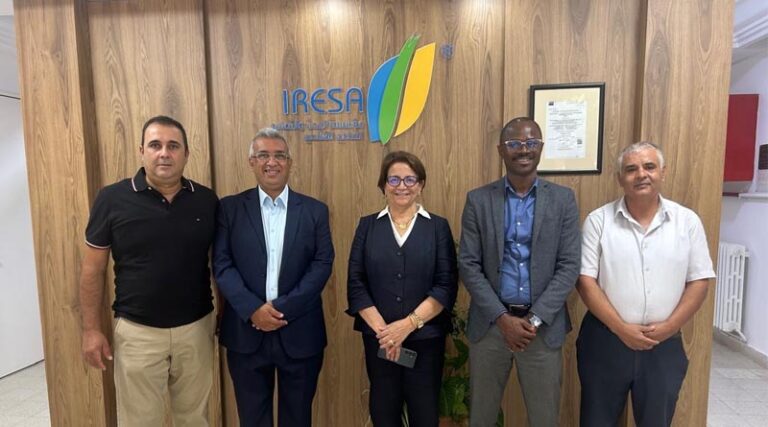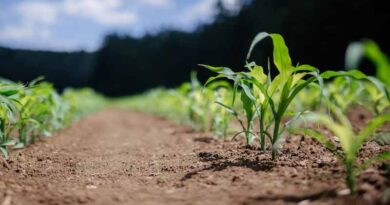
Advancing Olive Tree Crop Research and Soil Health in Tunisia
09 October 2025, Africa: Over recent years, the African Plant Nutrition Institute (APNI) and Olive Institute of Tunisia (OIT) have developed a productive collaboration that has generated significant knowledge on olive production systems. Together, the institutions have carried out multi-year studies on fertilization practices, compared fertigation and foliar methods, and surveyed one hundred farmers to better understand the realities of olive management in Tunisia. Fieldwork has also included detailed biomass measurements, combining destructive sampling and advanced modeling, to capture the dynamics of olive growth and carbon storage. These efforts have laid a strong foundation for more sustainable approaches to managing nutrients and water in olive systems.
This August, the APNI team, represented by Dr. Hakim Boulal and Dr. Kokou Amouzou, carried out a business mission in Tunis. The visit reflected APNI’s strong commitment to advancing research on olive tree crops, while reinforcing long-standing partnerships with the OIT and the Agricultural Research and Higher Education Institute (IRESA).
The mission in August focused on reviewing these achievements and setting new priorities. A central discussion point was the doctoral research of Rabii Lanwer, an OIT PhD student supported by APNI. His work is exploring how olive monoculture and agroforestry systems contribute to biomass accumulation, soil health, and carbon sequestration. This research is generating valuable evidence on the social, economic, and environmental performance of olive production systems. APNI and OIT agreed to strengthen this effort further, prioritizing soil health monitoring, microbiological analysis, and carbon stock assessments, while also advancing life cycle assessment (LCA) methods to measure environmental performance across different olive-based systems.
Beyond the technical discussions with OIT, APNI also engaged directly with key national stakeholders. Meetings at IRESA headquarters brought together Dr. Zohra Lili Chabaane, President of IRESA, and Dr. Ali Chebli, Director of R&D Planning, while at the Ministry of Agriculture, Dr. Boulal and Dr. Amouzou met with Mrs. Rafla Attia, Director of Soils, along with Professor Ajmi Larbi of OIT. These exchanges highlighted the importance of expanding APNI’s Fertilizer Use and Soil Health (FUSH) initiative into North Africa. Stakeholders recognized the alignment between Tunisia’s national priorities and APNI’s continental agenda under the Africa Fertilizer and Soil Health (AFSH) framework, emphasizing the need to build a soil health research network that serves scientists, extension agents, and farmers alike.
Looking ahead, APNI and its Tunisian partners agreed to concrete steps that will bring this collaboration to the next level. These include finalizing and supporting the PhD work of Rabii Lanwer, integrating life cycle assessment expertise into the research, piloting a Soil Health Hub workshop in Tunisia to set regional priorities, and conducting specialized training for laboratory technicians at OIT. Efforts will also focus on ensuring robust knowledge sharing and data management, in line with APNI protocols.
This mission demonstrated the value of APNI’s collaborative model, where research, stakeholder engagement, and capacity development converge to produce tangible impact. By deepening partnerships in Tunisia, APNI is helping to build resilient olive production systems that not only support farmer livelihoods but also contribute to soil health, carbon sequestration, and broader climate resilience in North Africa.
📢 If You’re in Agriculture, Make Sure the Right People Hear Your Story.
From product launches to strategic announcements, Global Agriculture offers unmatched visibility across international agri-business markets. Connect with us at pr@global-agriculture.com to explore editorial and advertising opportunities that reach the right audience, worldwide.






